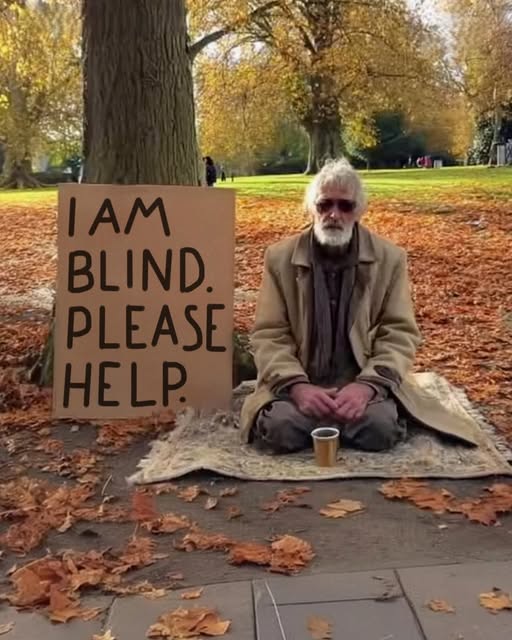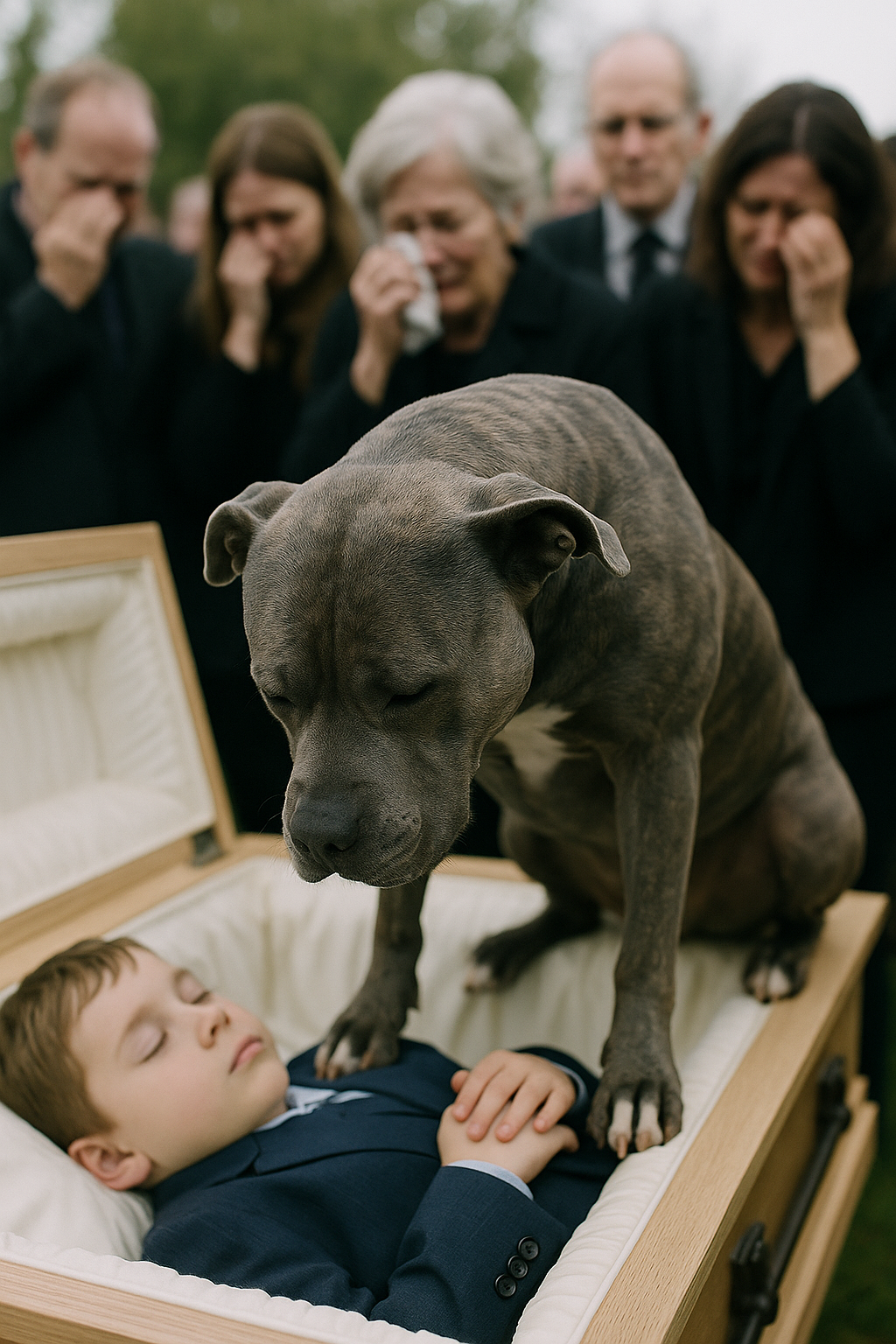
Some days pass in a haze of routine — wake up, work, survive, repeat. But every once in a while, something unexpected cuts through the noise and lodges itself deep inside you. For me, it happened on an ordinary Sunday in the park, when a blind man’s sign and a simple marker shifted the course of both our lives.
My name is Jenny. I’m thirty-six, a widow, and a mother of two. Even now, saying those words stings. Three years ago, my husband Matt was killed in a car crash on a rainy November night. One phone call, and everything I thought I knew about life shattered. Since then, it’s just been me and the kids — Adam, now eight, and Alice, six.
We rent a small two-bedroom in a creaky old duplex. The radiator knocks at night, the neighbor downstairs smokes too much, but it’s warm in the winter and the roof doesn’t leak. That’s more than many can say. To keep us afloat, I work part-time at the local library and take on transcription gigs after the kids are asleep. It isn’t glamorous, but it covers rent, food, and the never-ending list of “mom duties.” Some days, I swipe my debit card at the grocery store and hold my breath, praying it clears.
Still, I do my best to shield Adam and Alice from adult worries. Birthdays come with balloons, hot chocolate always has marshmallows, and Sundays are reserved for the park — no matter how tired I am.
That Sunday was one of those rare bright afternoons after a string of gray days. Adam raced ahead in his red hoodie, shouting triumphantly each time he found chestnuts under the trees. Alice skipped behind him, braids bouncing, claiming the shiny ones for herself. Their laughter echoed through Riverside Park, and for a moment, I felt light again.
We stopped at a bench, and while the kids built wobbly chestnut towers, I noticed him — an elderly man sitting cross-legged on a thin, worn rug near the bushes. His shoulders sagged under invisible weight, and beside him lay a piece of cardboard scrawled in uneven letters: I AM BLIND. PLEASE HELP.
His cup held only a few coins. He wasn’t begging, just sitting silently as the world streamed past. Something twisted inside me. I opened my wallet — two crumpled bills and a handful of coins. It wasn’t much, but I couldn’t just walk by. I dropped the bills into his cup. His hand trembled as he reached for them, then lifted his head slightly.
“Thank you,” he whispered, his voice rough. “You have no idea what this means to me.”
I nodded and walked back to the bench, but I couldn’t stop watching him. For twenty minutes, I saw person after person pass him by — joggers, families, couples. Not one stopped. His sign wasn’t invisible, but it might as well have been.
That’s when it hit me. His words weren’t wrong, but they weren’t reaching anyone. Without thinking, I walked back.
He tilted his head toward me. “What are you doing?”
“Helping,” I said softly. I picked up the cardboard, flipped it over, and pulled out a black marker from my bag — one of the many I always carried for the kids. I thought carefully, then wrote a new message in bold, clear letters. When I set it back down facing the path, I didn’t explain. I just stepped aside and waited.
Minutes later, a backpacker stopped and dropped coins into the cup. A mother slipped a folded bill into his hand. Another passerby bent down, offering more. Within half an hour, his cup was nearly full. The old man’s lips curled into a smile so wide it brought tears to my eyes.
“Thank you!” he said, his voice trembling with joy. “I’ll eat tonight. I’ll be warm. God bless you!”
He didn’t know what I’d written, but he felt its power. I had changed his sign to: It’s a beautiful day, and I can’t see it.
When I gathered the kids to leave, he called out, “Ma’am! You rewrote my sign, didn’t you?”
“Yes,” I answered.
“What did you write?”
I hesitated, then smiled. “The same thing you were saying. Just in a way they could feel.”
That moment stayed with me. It reminded me that small changes — a few words, a kind gesture — can shift how people see the world. For the blind man, it meant food, warmth, and dignity. For me, it sparked something deeper: the realization that I still had the ability to create change, even in my own tired, fragile life.
The weeks that followed were different. I slowed down, paid closer attention to my children’s laughter, and allowed myself to notice beauty in the ordinary. Every time I saw someone struggling, I remembered that man and his smile. Sometimes, the kids and I even went back to the park. When he was there, we stopped — not just to give money, but to talk.
One afternoon, Adam asked him, “Weren’t you scared, being out here alone?”
The man smiled gently. “Sometimes. But then people like your mom remind me there’s still kindness in the world.”
Alice squeezed my hand and whispered, “See, Mommy? You’re the best.”
That day in the park didn’t just help a stranger. It reminded me that hope still existed — in cardboard signs, in black markers, and in the simple act of seeing someone who had been invisible for far too long.
Because sometimes, all it takes to change a life is the right words, at the right time.

